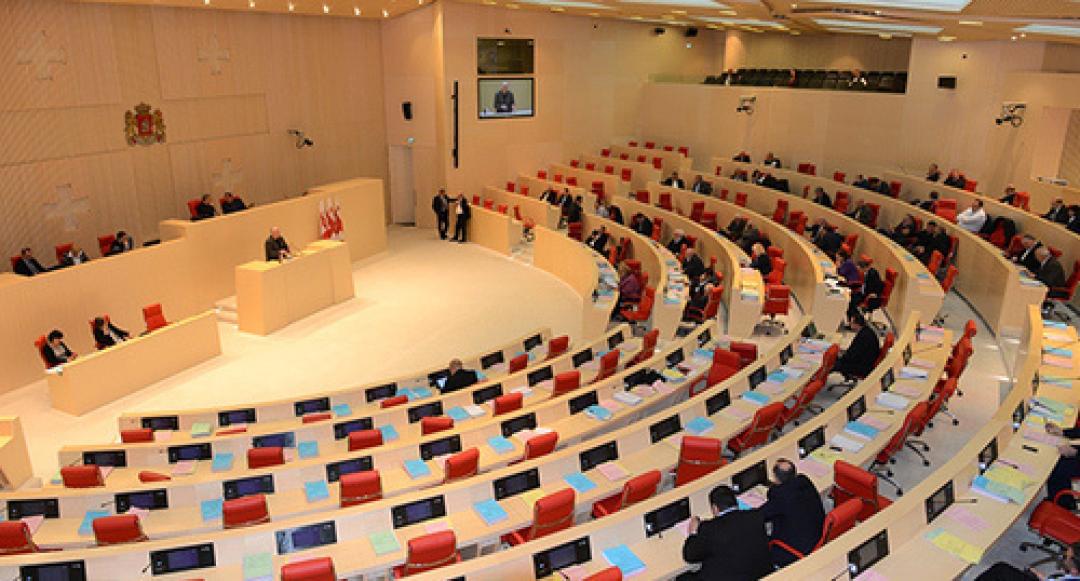
Georgia's Finance Minister Touts Economic Resilience and Growth; Opposition Questions

During a parliamentary session in the "Minister's Hour" format on February 21, Georgia's Minister of Finance, Lasha Khutsishvili, presented an analysis of recent macroeconomic indicators, highlighting Georgia's strong performance compared to both EU member and candidate countries.
Khutsishvili emphasized that Georgia has either caught up with or surpassed many EU nations across various economic metrics. He cited impressive figures such as high economic growth rates, low inflation, minimal government debt, budget deficits, and a swift recovery from the economic downturn caused by the pandemic. The Minister underscored the significance of Georgia's economic resilience, especially in light of global and regional geopolitical shifts. While major economies continue to grapple with pandemic-induced challenges, Georgia has successfully navigated its way back to pre-pandemic growth trajectories.
One notable achievement highlighted by Khutsishvili is the complete recovery of economic growth following the pandemic-induced setback. "Despite global uncertainties, Georgia's economy has rebounded to its pre-crisis levels, reflecting its resilience and adaptability," he added.
Khutsishvili also shared optimistic projections for Georgia's per capita income, suggesting that by 2024, it could reach up to 45 percent of the median indicator of the European Union, adjusted for purchasing power. He compared Georgia's progress favorably with that of four EU accession countries—Poland, Lithuania, Latvia, and Bulgaria—whose per capita incomes were lower at the time of their accession.
In terms of inflation, Khutsishvili reported that Georgia experienced an average annual inflation rate of 2.5 percent in 2023, with inflation remaining below 1 percent for the past eight months. He expressed confidence that Georgia would maintain its inflation rate within the target range in the foreseeable future, signaling stability and predictability in the country's economic outlook.
Khutsishvili mentioned that the Ministry approved the 2023-2026 public finance management strategy based on the "Public Expenditure and Financial Accountability (PEFA)" assessment conducted in 2022. He emphasized that Georgia received the highest rating in 20 out of 31 indicators assessed, making it the top-ranked country among the 59 evaluated by the PEFA methodology. The strategy aims to enhance public finance management not only at the central but also at the municipal level.
"One significant aspect of the strategy is introducing an evaluation system for budget programs. In 2024, the Ministry plans to initiate the evaluation of one selected program and begin implementing the evaluation system. This move reflects Georgia's commitment to ensuring transparency and accountability in budgetary processes," the minister noted.
Khutsishvili also highlighted Georgia's continued progress in budget transparency, as evidenced by its position in the updated index of budget transparency (OBS). Georgia maintained its position among the most transparent countries and secured the top spot among 120 nations globally. This achievement underscores Georgia's dedication to promoting transparency and efficiency in its financial operations.
Giorgi Vashadze, the Chairman of "Strategy Aghmashenebeli," posed a critical question to Lasha Khutsishvili during the "Minister's Hour" in Parliament. Vashadze pointed out discrepancies in the cost of living between Georgia and neighboring countries, highlighting issues such as higher prices for basic goods like water, butter, and eggs in Georgia compared to the EU and neighboring nations.
He questioned why essential items are more expensive in Georgia despite the country's purported higher per capita economy. Vashadze raised concerns about the affordability of goods and the inconvenience faced by Georgian citizens who cross the border to Turkey to purchase cheaper products. He criticized the government's economic policies, suggesting that budget allocations might benefit the elite rather than addressing the population's needs.
Furthermore, Vashadze highlighted Georgia's high unemployment rate compared to neighboring countries such as Armenia, Azerbaijan, and the wider Black Sea region. He challenged the Minister of Finance to explain why Georgia grapples with higher unemployment rates despite its supposedly stronger economy.
See Also


Armenia Records 5.9% GDP Growth in 2024, Missing 7% Goal

Yerevan Balances Strategic Ties with Both US and Russia, Says Foreign Minister

FM Mirzoyan: Peace Deal with Azerbaijan Is Within Reach

Pashinyan and Erdogan Hold Call, Reaffirm Commitment to Ongoing Dialogue

